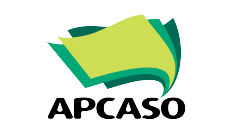HIV and Health Financing

Building on its previous collaboration with the Australian Federation of AIDS Organisations (AFAO) for the Community Advocacy Initiative (CAI) project, which supported country-level advocacy activities on HIV financing, APCASO is actively engaged in key international and regional platforms and spaces to advocate for adequate, equitable, sustainable and evidence-based investments in HIV and health responses.
These include APCASO’s role as the Secretariat of the Global Fund Advocates Network for Asia Pacific (GFAN AP), a broad coalition of different HIV, TB, and malaria organisations in Asia-Pacific pushing for increased donor investments for the Global Fund for AIDS, TB, and Malaria (GFATM) and for greater domestic funding for the three diseases.
Advocacy on increasing domestic contribution to the HIV responses and promotion of strategic and sustained health financing underpins much of APCASO’s policy and advocacy work.
Access to Affordable Medicines Initiative

Access to Affordable Medicines Initiative is in collaboration with the Regional TRIPS Working Group, which APCASO is a member of. The Regional TRIPS Working Group aims to increase access to affordable antiretrovirals (ARVs) for HIV and other medicines, vaccines and diagnostics in Asia Pacific by protecting and promoting the utilisation of TRIPS flexibilities by governments.
The TRIPS Working Group is comprised of regional community and civil society organisations and networks, including Asia Pacific Network of People Living with HIV (APN+) and amfAR/TREAT Asia and UN technical agencies and partners: UNAIDS Regional Support Team (RST), UNDP Asia Pacific Regional Hub, and World Health Organisation (WHO) Western Pacific Region (WPRO) and South-East Asia Regional Office (SEARO).
The Access to Affordable Medicines Initiative aims to:
- Increase awareness and demand for the use of TRIPS flexibilities at the country level;
- Coordinate support (financial, technical and other) to countries in a rapid and effective manner;
- Monitor and identify opportunities that could strengthen or negatively impact countries’’ ability to use TRIPS flexibilities; and
- Advocate for appropriate IP policy reviews and implementations.
As part of this program, APCASO, together with APN+, Economic and Social Commission for Asia Pacific (ESCAP), UNDP and UNAIDS hosted the Regional Expert Consultation on Access to Affordable Medicines, Diagnostics and Vaccines on March 15-17, 2016. The consultation also served as a platform for different Asia-Pacific CSOs to intervene in the CSO hearing conducted by the UN High-Level Panel on Access to Medicines in Durban, South Africa.
Health is a human right, and APCASO believes that governments have the obligation to deliver access to affordable medicines, vaccines and diagnostics for their citizens. APCASO further believes that international trade deals, especially those that impose policies on intellectual property rights, should not undermine public health.
The CRG Programme

APCASO is the host of the Asia-Pacific Communication and Coordination Platform on Communities, Rights and Gender (APCRG) – an initiative of the Global Fund CRG Special Initiative.
The initiative seeks to improve the inclusion of CRG-related interventions in country responses and Global Fund-supported programs to address HIV, TB, and malaria epidemics. Community-centered, human rights-based, and gender-responsive programs are necessary for effective responses for the above diseases.
To end the HIV, TB, and malaria epidemics, communities, rights, and gender should be in front and centre of country responses to fight the three diseases.
Strengthening Key Populations and Civil Society in CCMs

APCASO with funding support from GIZ BACKUP Health (commissioned by the Government of the Federal Republic of Germany) is supporting civil society (CS) and key population (KP) networks more effectively engage in Country Coordinating Mechanisms (CCMs) in four countries in the region: Nepal, Papua New Guinea, Pakistan, and Sri Lanka.
The project aims to increase the effectiveness of civil society and key population engagement and contribution in CCMs in the four countries mentioned to enhance the overall performance of the respective CCMs, thus contributing to the improvement of Global Fund financed programmes in these countries.
This work builds on existing technical assistance initiatives and will be done in close coordination with in-country technical and development partners.
